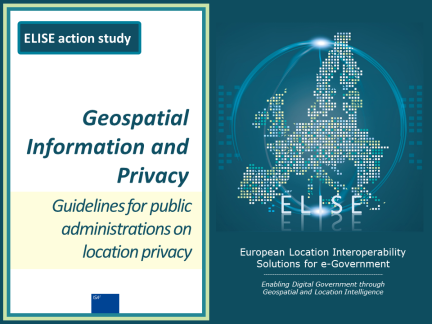
Background and scope

Public administrations increasingly use location data, consciously or unconsciously, to carry out their activities, both for the delivery of public services and internal purposes. However, there may be a lack of awareness of the collection and processing and location data and the personal data privacy impact as it may be embedded within the overall process, e.g. the multitude of sensors and personal data collected and collated in the management of Smart Cities.
While location data privacy has many aspects in common with general data protection principles, particular characteristics of location need to be considered. Actions can be taken to mitigate the potential risks associated with using (personal) location data, keeping these characteristics in place mind.
Outputs
1. Guidelines for public administrations on location privacy:
The goal of this guidance document is to outline the key obligations that public administrations should comply with when handling personal location data and raising awareness about the importance of location data privacy, highlighting key implications and risks associated with the processing of location data. It does so by guiding the reader through concrete scenarios that public administrations might face when processing personal location data and provides a set of effective and practical recommendations that can help ensure the adequate protection of personal location data.
| Available versions | Access |
|---|---|
| Guidelines for public administrations on location privacy - Version 2 | Get it here |
| Guidelines for public administrations on location privacy - Version 1 | Get it here |
2. WGIC Geospatial Information and Privacy:
The World Geospatial Industry Council (WGIC) has published a policy report addressing the following questions. How do data protection and privacy legislation relate to the geospatial information sector? What are the requirements under data protection and privacy legislation throughout the world, and how do they impact the geospatial industry at large? The assessment methodology and best practices were drawn from the ELISE guidelines on location data privacy. [Get the report here]
3. Events
| ELISE workshop: General Data Protection Regulation (GDPR): Trusting the use of your personal location data | Get slides here |
| ELISE webinar: ELISE guidance on Location Data Privacy [22/10/2020] |
Get slides here |
Additional resources
EULF Blueprint
Recommendation 3: Ensure all measures are in place, consistent with legal requirements, to protect personal privacy when processing location data [Go to the EULF Blueprint]
Location Interoperability Framework Observatory (LIFO)
LIFO monitors the alignment of countries participating to the ISA2 programme with the EULF Blueprint through a series of questions and related indicators.
Question 3.1 tackles the location data privacy topic:How well-prepared are controllers and processors of public sector location data in your country for GDPR, including awareness of potential location data privacy issues and processes in place to comply with the rights of data subjects?
Check out the results on how the participating countries to LIFO survey performed in this aspect in 2019 [Go to LIFO 2019]
Assessing the impacts of digital government transformation in the EU
An original conceptual framework for assessing the impacts of Digital Government transformation in the public sector and the impacts they have at social, economic and political levels, including several use cases. The study looked at Germany /Spain for
- Exploring the trade-offs that citizens make between privacy and benefits from the use of new digital public services in various domains
- Identifying under what conditions citizens are willing to adopt new digital public services
- Understanding what role trust in the public sector plays in the adoption of such services [Go to DIGIGOV]



